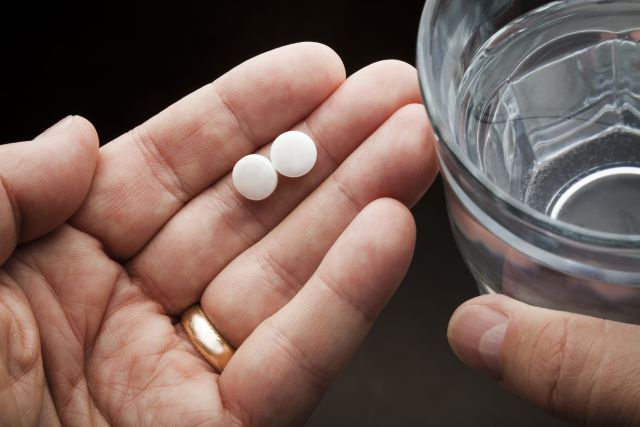Updated on April 26, 2022.
For the past several decades, taking aspirin has been touted as a way to help prevent first heart attacks, strokes, and other serious cardiovascular events. But more recent research is challenging this long-held practice, suggesting that for adults with no history of heart disease or stroke, a daily regimen of low-dose aspirin may do more harm than good.
The mounting evidence prompted the American Heart Association (AHA) and the American College of Cardiology (ACC) to issue a revised set of guidelines on daily aspirin use in March 2019. The U.S. Preventive Services Task Force (USPSTF) followed suit by revamping their guidelines in April 2022.
What the guidelines say
The updated recommendations advise against aspirin therapy as a way to prevent a first heart attack or stroke among adults who do not already have heart disease. This shift in advice is based on newer studies, which suggest that the risks (mainly bleeding) are greater and the benefits are smaller than previously thought.
For example, one study published in September 2018 in the New England Journal of Medicine found that the risk for older adults of bleeding in the gut and brain outweighed the heart benefits. Avoiding low-dose aspirin therapy is particularly important for people at high risk of bleeding who’ve never had a heart attack or stroke.
So, instead of taking aspirin every day, experts emphasize that adopting certain heart-healthy lifestyle habits—such as eating a healthy diet, not smoking, exercising regularly, and keeping blood pressure and cholesterol levels in check—are much better ways for low-risk adults to protect their heart health.
Keep in mind that a daily, low-dose aspirin is still recommended for people who have already had a heart attack, as long as they are able to safely tolerate aspirin. The new guidelines don’t change that.
Where the guidelines diverge
The updated recommendations differ in a few ways for people who have never had a heart attack. According to the AHA and ACC, daily aspirin may still be advised for people 40 to 70 years of age if they’re at high risk for heart disease and not at increased risk of bleeding. A patient in this category may still be instructed by their healthcare provider (HCP) to take 75 to 100 milligrams of aspirin per day. Adults older than 70 should not routinely use low-dose aspirin to prevent heart attack or stroke.
The USPSTF, meanwhile, in their April 2022 guidance, noted that adults aged 40 to 59 who have a 10 percent or greater 10-year risk of cardiovascular disease and who are not at increased risk for bleeding may take daily low-dose aspirin to prevent a first heart attack or stroke. The USPSTF notes, however, that the evidence for any benefit is small and advises that people in this age group should consult with their HCPs about starting such a regimen—or stopping aspirin if they already take it daily. Your HCP can help you determine your 10-year risk of cardiovascular disease.
In a departure with the AHA and ACC, the USPSTF flatly advises folks age 60 and older not to take a daily low-dose aspirin to prevent a first heart attack or stroke.
Understanding the risks of taking aspirin
The risks of bleeding stemming from an aspirin regimen may be particularly dangerous for people with certain health issues or those taking other medications that thin the blood to help prevent blood clots.
People with asthma or nasal polyps are sometimes advised to avoid taking aspirin because it can trigger breathing problems. If you have any of the following conditions, your risk of dangerous side effects associated with aspirin use is especially high:
- Bleeding disorders
- Gastric or peptic ulcers
- Kidney or liver problems
- Low vitamin K levels
- Pregnancy, especially during the third trimester
Don’t take a daily aspirin unless your HCP says it makes sense for you. If you’re already taking aspirin for a medical reason, don’t stop unless you have your HCP’s approval. Remember to tell your HCP about all medications and supplements you take to make sure there are no potential interactions with aspirin.







